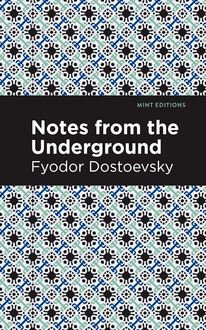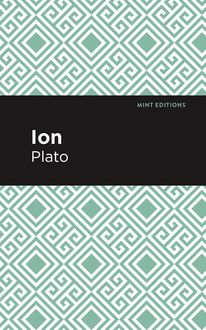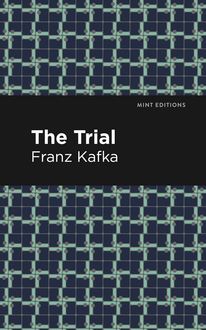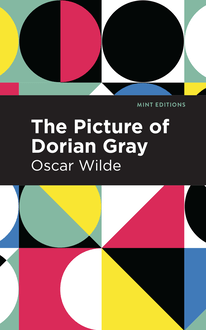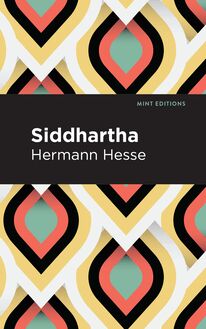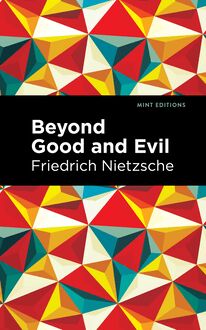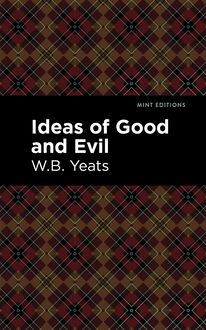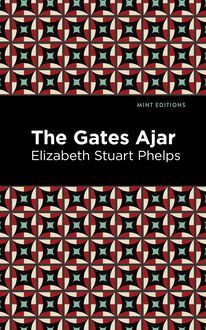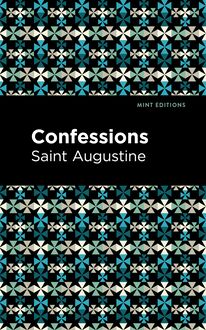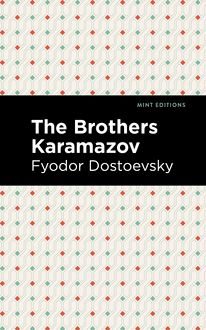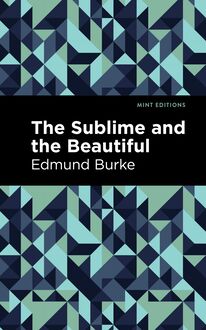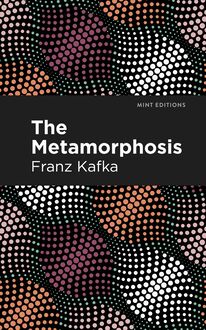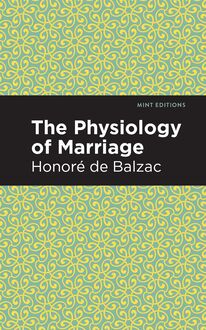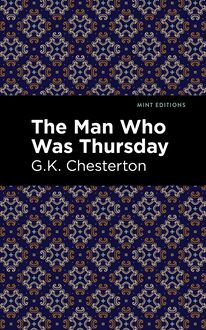-
 Univers
Univers
-
 Ebooks
Ebooks
-
 Livres audio
Livres audio
-
 Presse
Presse
-
 Podcasts
Podcasts
-
 BD
BD
-
 Documents
Documents
-
- Cours
- Révisions
- Ressources pédagogiques
- Sciences de l’éducation
- Manuels scolaires
- Langues
- Travaux de classe
- Annales de BEP
- Etudes supérieures
- Maternelle et primaire
- Fiches de lecture
- Orientation scolaire
- Méthodologie
- Corrigés de devoir
- Annales d’examens et concours
- Annales du bac
- Annales du brevet
- Rapports de stage
La lecture à portée de main
Vous pourrez modifier la taille du texte de cet ouvrage
Découvre YouScribe en t'inscrivant gratuitement
Je m'inscrisDécouvre YouScribe en t'inscrivant gratuitement
Je m'inscrisEn savoir plus
Vous pourrez modifier la taille du texte de cet ouvrage
En savoir plus

Description
What does it mean to live a life of completeness? And how far must one go to understand the pain of others? Is change truly possible? This is the story that proves that it is. In what could be described as equal parts self-help book and a novelistic guide to spiritual awakening, Siddhartha has been hailed as prolific and unlike any other.
Growing up, Siddhartha never experienced true pain. He was sheltered, as many are, turning a blind eye when the hardships of daily life made itself visible to the peasantry around him. Awakening from a hazy reverie that has shielded Siddhartha from the inevitable, he vows to make a change. With the hope of finding a deeper and resounding life’s purpose, Siddhartha, a young man living in the ancient Indian kingdom of Kapilavastu, embarks on a journey of self-discovery and actualization. Accompanied by his best friend Govinda, the pair abandon the comfort of their old life by trading their material possessions for what they hope will be eternal enlightenment. Ridding themselves completely of the comforts of their previous life, the duo vow to a life of attempted purity. In a world where suffering is inevitable, Siddhartha hopes that by experiencing the pain so many face, only then will he find the true meaning of life.
Siddhartha, written by German author Hermann Hesse in 1951, is a tale of self-discovery and spiritual awakening. The novel as a whole explores the totality of the human experience, of what it means to abandon the parameters of comfort and routine in search for a higher calling.
Sujets
Informations
| Publié par | Mint Editions |
| Date de parution | 07 avril 2020 |
| Nombre de lectures | 4 |
| EAN13 | 9781513263816 |
| Langue | English |
| Poids de l'ouvrage | 1 Mo |
Informations légales : prix de location à la page 0,0350€. Cette information est donnée uniquement à titre indicatif conformément à la législation en vigueur.
Extrait
Siddhartha
Hermann Hesse
Siddhartha was first published in 1922.
This edition published by Mint Editions 2020.
ISBN 9781513263267 | E-ISBN 9781513263816
Published by Mint Editions®
minteditionbooks.com
Publishing Director: Jennifer Newens
Project Manager: Gabrielle Maudiere
Design & Production: Rachel Lopez Metzger
C ONTENTS F IRST P ART The Son of the Brahman With the Samanas Gotama Awakening S ECOND P ART Kamala With the Childlike People Sansara By the River The Ferryman The Son Om Govinda
FIRST PART
To Romain Rolland, my dear friend
T HE S ON OF THE B RAHMAN
In the shade of the house, in the sunshine of the riverbank near the boats, in the shade of the Sal-wood forest, in the shade of the fig tree is where Siddhartha grew up, the handsome son of the Brahman, the young falcon, together with his friend Govinda, son of a Brahman. The sun tanned his light shoulders by the banks of the river when bathing, performing the sacred ablutions, the sacred offerings. In the mango grove, shade poured into his black eyes, when playing as a boy, when his mother sang, when the sacred offerings were made, when his father, the scholar, taught him, when the wise men talked. For a long time, Siddhartha had been partaking in the discussions of the wise men, practicing debate with Govinda, practicing with Govinda the art of reflection, the service of meditation. He already knew how to speak the Om silently, the word of words, to speak it silently into himself while inhaling, to speak it silently out of himself while exhaling, with all the concentration of his soul, the forehead surrounded by the glow of the clear-thinking spirit. He already knew to feel Atman in the depths of his being, indestructible, one with the universe.
Joy leapt in his father’s heart for his son who was quick to learn, thirsty for knowledge; he saw him growing up to become great wise man and priest, a prince among the Brahmans.
Bliss leapt in his mother’s breast when she saw him, when she saw him walking, when she saw him sit down and get up, Siddhartha, strong, handsome, he who was walking on slender legs, greeting her with perfect respect.
Love touched the hearts of the Brahmans’ young daughters when Siddhartha walked through the lanes of the town with the luminous forehead, with the eye of a king, with his slim hips.
But more than all the others he was loved by Govinda, his friend, the son of a Brahman. He loved Siddhartha’s eye and sweet voice, he loved his walk and the perfect decency of his movements, he loved everything Siddhartha did and said and what he loved most was his spirit, his transcendent, fiery thoughts, his ardent will, his high calling. Govinda knew: he would not become a common Brahman, not a lazy official in charge of offerings; not a greedy merchant with magic spells; not a vain, vacuous speaker; not a mean, deceitful priest; and also not a decent, stupid sheep in the herd of the many. No, and he, Govinda, as well did not want to become one of those, not one of those tens of thousands of Brahmans. He wanted to follow Siddhartha, the beloved, the splendid. And in days to come, when Siddhartha would become a god, when he would join the glorious, then Govinda wanted to follow him as his friend, his companion, his servant, his spear-carrier, his shadow.
Siddhartha was thus loved by everyone. He was a source of joy for everybody, he was a delight for them all.
But he, Siddhartha, was not a source of joy for himself, he found no delight in himself. Walking the rosy paths of the fig tree garden, sitting in the bluish shade of the grove of contemplation, washing his limbs daily in the bath of repentance, sacrificing in the dim shade of the mango forest, his gestures of perfect decency, everyone’s love and joy, he still lacked all joy in his heart. Dreams and restless thoughts came into his mind, flowing from the water of the river, sparkling from the stars of the night, melting from the beams of the sun, dreams came to him and a restlessness of the soul, fuming from the sacrifices, breathing forth from the verses of the Rig-Veda, being infused into him, drop by drop, from the teachings of the old Brahmans.
Siddhartha had started to nurse discontent in himself, he had started to feel that the love of his father and the love of his mother, and also the love of his friend, Govinda, would not bring him joy forever and ever, would not nurse him, feed him, satisfy him. He had started to suspect that his venerable father and his other teachers, that the wise Brahmans had already revealed to him the most and best of their wisdom, that they had already filled his expecting vessel with their richness, and the vessel was not full, the spirit was not content, the soul was not calm, the heart was not satisfied. The ablutions were good, but they were water, they did not wash off the sin, they did not heal the spirit’s thirst, they did not relieve the fear in his heart. The sacrifices and the invocation of the gods were excellent—but was that all? Did the sacrifices give a happy fortune? And what about the gods? Was it really Prajapati who had created the world? Was it not the Atman, He, the only one, the singular one? Were the gods not creations, created like me and you, subject to time, mortal? Was it therefore good, was it right, was it meaningful and the highest occupation to make offerings to the gods? For whom else were offerings to be made, who else was to be worshipped but Him, the only one, the Atman? And where was Atman to be found, where did He reside, where did his eternal heart beat, where else but in one’s own self, in its innermost part, in its indestructible part, which everyone had in himself? But where, where was this self, this innermost part, this ultimate part? It was not flesh and bone, it was neither thought nor consciousness, thus the wisest ones taught. So, where, where was it? To reach this place, the self, myself, the Atman, there was another way, which was worthwhile looking for? Alas, and nobody showed this way, nobody knew it, not the father, and not the teachers and wise men, not the holy sacrificial songs! They knew everything, the Brahmans and their holy books, they knew everything, they had taken care of everything and of more than everything, the creation of the world, the origin of speech, of food, of inhaling, of exhaling, the arrangement of the senses, the acts of the gods, they knew infinitely much—but was it valuable to know all of this, not knowing that one and only thing, the most important thing, the solely important thing?
Surely, many verses of the holy books, particularly in the Upanishads of Samaveda, spoke of this innermost and ultimate thing, wonderful verses. “Your soul is the whole world”, was written there, and it was written that man in his sleep, in his deep sleep, would meet with his innermost part and would reside in the Atman. Marvelous wisdom was in these verses, all knowledge of the wisest ones had been collected here in magic words, pure as honey collected by bees. No, not to be looked down upon was the tremendous amount of enlightenment which lay here collected and preserved by innumerable generations of wise Brahmans.—But where were the Brahmans, where the priests, where the wise men or penitents, who had succeeded in not just knowing this deepest of all knowledge but also to live it? Where was the knowledgeable one who wove his spell to bring his familiarity with the Atman out of the sleep into the state of being awake, into the life, into every step of the way, into word and deed? Siddhartha knew many venerable Brahmans, chiefly his father, the pure one, the scholar, the most venerable one. His father was to be admired, quiet and noble were his manners, pure his life, wise his words, delicate and noble thoughts lived behind its brow—but even he, who knew so much, did he live in blissfulness, did he have peace, was he not also just a searching man, a thirsty man? Did he not, again and again, have to drink from holy sources, as a thirsty man, from the offerings, from the books, from the disputes of the Brahmans? Why did he, the irreproachable one, have to wash off sins every day, strive for a cleansing every day, over and over every day? Was not Atman in him, did not the pristine source spring from his heart? It had to be found, the pristine source in one’s own self, it had to be possessed! Everything else was searching, was a detour, was getting lost.
Thus were Siddhartha’s thoughts, this was his thirst, this was his suffering.
Often he spoke to himself from a Chandogya-Upanishad the words: “Truly, the name of the Brahman is satyam—verily, he who knows such a thing, will enter the heavenly world every day.” Often, it seemed near, the heavenly world, but never he had reached it completely, never he had quenched the ultimate thirst. And among all the wise and wisest men, he knew and whose instructions he had received, among all of them there was no one, who had reached it completely, the heavenly world, who had quenched it completely, the eternal thirst.
“Govinda,” Siddhartha spoke to his friend, “Govinda, my dear, come with me under the Banyan tree, let’s practise meditation.”
They went to the Banyan tree, they sat down, Siddhartha right here, Govinda twenty paces away. While putting himself down, ready to speak the Om, Siddhartha repeated murmuring the verse:
Om is the bow, the arrow is soul,
The Brahman is the arrow’s target,
That one should incessantly hit.
After the usual time of the exercise in meditation had passed, Govinda rose. The evening had come, it was time to perform the evening’s ablution. He called Siddhartha’s name. Siddhartha did not answer. Siddhartha sat there lost in thought, his eyes were rigidly focused towards a very distant target, the tip of his tongue was protruding a little between the teeth, he seemed not to breathe. Thus sat he, wrapped up in contemplation, thinking Om, his soul sent after the Brahman as an arro
-
 Univers
Univers
-
 Ebooks
Ebooks
-
 Livres audio
Livres audio
-
 Presse
Presse
-
 Podcasts
Podcasts
-
 BD
BD
-
 Documents
Documents
-
Jeunesse
-
Littérature
-
Ressources professionnelles
-
Santé et bien-être
-
Savoirs
-
Education
-
Loisirs et hobbies
-
Art, musique et cinéma
-
Actualité et débat de société
-
Jeunesse
-
Littérature
-
Ressources professionnelles
-
Santé et bien-être
-
Savoirs
-
Education
-
Loisirs et hobbies
-
Art, musique et cinéma
-
Actualité et débat de société
-
Actualités
-
Lifestyle
-
Presse jeunesse
-
Presse professionnelle
-
Pratique
-
Presse sportive
-
Presse internationale
-
Culture & Médias
-
Action et Aventures
-
Science-fiction et Fantasy
-
Société
-
Jeunesse
-
Littérature
-
Ressources professionnelles
-
Santé et bien-être
-
Savoirs
-
Education
-
Loisirs et hobbies
-
Art, musique et cinéma
-
Actualité et débat de société
- Cours
- Révisions
- Ressources pédagogiques
- Sciences de l’éducation
- Manuels scolaires
- Langues
- Travaux de classe
- Annales de BEP
- Etudes supérieures
- Maternelle et primaire
- Fiches de lecture
- Orientation scolaire
- Méthodologie
- Corrigés de devoir
- Annales d’examens et concours
- Annales du bac
- Annales du brevet
- Rapports de stage
